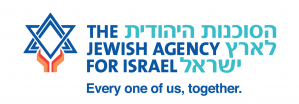What is the Translation Rosh (רֹאשׁ) from Hebrew to English?
“Rosh” is a Hebrew word that primarily means “head” in English. It holds a diverse range of meanings and interpretations in both its literal and figurative usage.
Literal Meanings
1. **Human Anatomy:** In its most straightforward sense, “rosh” refers to the physical head of a person or any living creature. It encompasses the skull, face, and everything associated with the top part of the body.
2. **Direction:** “Rosh” can also denote the direction of the head, which often symbolizes the front or the beginning of something. For example, in Hebrew, “Rosh HaShanah” is the Jewish New Year, marking the beginning of the year. *
Figurative Meanings
1. **Leadership:** “Rosh” is frequently used metaphorically to represent leadership or authority. A “rosh” in a group or organization is typically the head or leader responsible for making decisions and guiding the group.
2. **Top or Chief:** In various contexts, “rosh” can signify the top or chief position within a category or hierarchy. For instance, “Rosh Yeshiva” refers to the head or chief of a religious school or seminary.
3. **First or Primary:** “Rosh” can also imply something that is first or primary in a list or series. For example, “Rosh Chodesh” refers to the first day of the Hebrew month, marking the start of the lunar month.
4. **Importance:** In expressions like “rosh gadol” (big head) or “rosh katan” (small head), it can denote importance or significance. A “rosh gadol” is someone of great importance or influence, while a “rosh katan” is less significant or minor. Overall, “rosh” is a versatile Hebrew word that encompasses various literal and figurative meanings related to the concept of “head.” Its usage extends from describing physical anatomy to leadership, importance, and directional markers, making it a foundational and multifaceted term in both the Hebrew language and cultural expressions.


